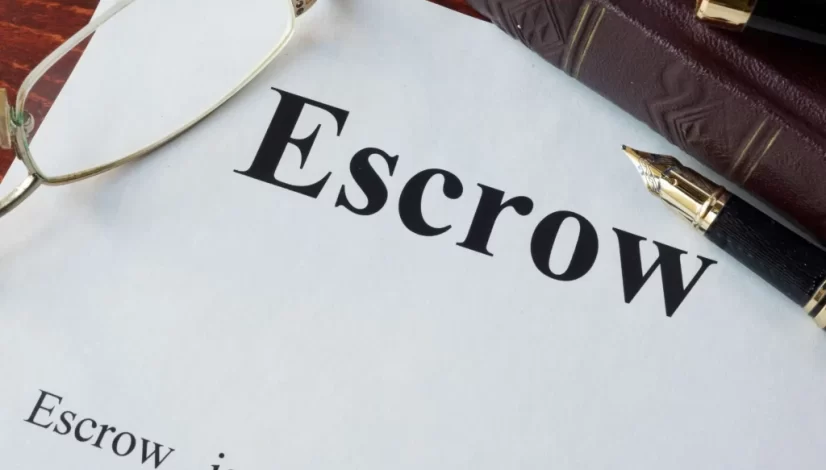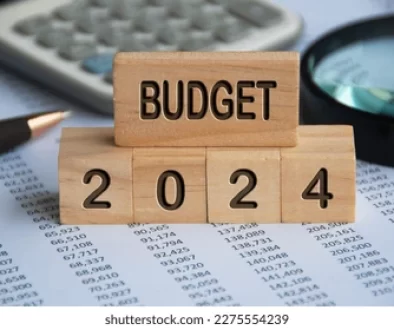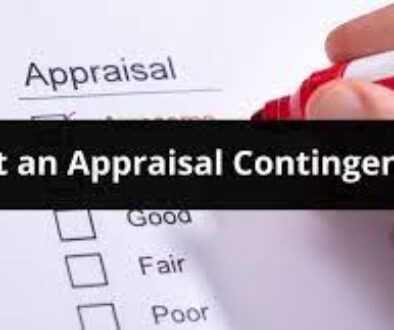Escrow
Escrow
What Is Escrow?
Escrow is a legal arrangement in which a third party temporarily holds money or property until a particular condition has been met (such as the fulfilment of a purchase agreement).
How Does Escrow Work?
It’s used in real estate transactions to protect both the buyer and the seller throughout the home buying process. Throughout the term of the mortgage, an escrow account will hold funds for taxes and homeowner’s insurance.
What Is An Escrow Account?
In real estate, escrow is typically used for two reasons:
- To protect the buyer’s good faith deposit so the money goes to the right party according to the conditions of the sale.
- To hold a homeowner’s funds for property taxes and homeowners insurance.
Because of the different purposes served, there are two types of escrow accounts. One is used during the home buying process, while the other is used throughout the life of your loan.
Escrow Accounts For Home Buying
When you’re buying a home, your purchase agreement will usually include a good faith deposit (also known as earnest money). This deposit shows that you’re serious about purchasing the home. If the contract falls through due to the fault of the buyer, the seller usually gets to keep the money. If the home purchase is successful, the deposit will be applied to the buyer’s down payment.
To protect both the buyer and the seller, an escrow account will be set up to hold the deposit. The good faith deposit will sit in the escrow account until the transaction closes. The cash is then applied to the down payment.
Sometimes, funds are held in escrow past the completion of the sale of the home. This is called an escrow holdback. There are many reasons an escrow holdback may be needed. Perhaps you agreed that the seller can stay in the home an extra month, or maybe you found something wrong with the property during the final walkthrough
If you’re building a new home, money may remain in escrow until you’ve signed off on all the work. Once the conditions are met, the money will be released to the right party.
Escrow Accounts For Taxes And Insurance
After you purchase a home, your lender will establish an escrow account to pay for your taxes and insurance. After closing, your mortgage servicer takes a portion of your monthly mortgage payment and holds it in the escrow account until your tax and insurance payments are due.
The amount required for escrow is a moving target. Your tax bill and insurance premiums can change from year to year. Your servicer will determine your escrow payments for the next year based on what bills they paid the previous year. To ensure there’s enough cash in escrow, most lenders require a minimum of 2 months’ worth of extra payments to be held in your account.
Your lender or servicer will analyze your escrow account annually to make sure they’re not collecting too much or too little. If their analysis of your escrow account determines that they’ve collected too much money for taxes and insurance, they’ll give you what is called an escrow refund.
If their analysis shows they’ve collected too little, you’ll need to cover the difference. You may be given options to make a one-time payment or increase the amount of your monthly mortgage payment to make up for a shortage in your escrow account.
Who Manages An Escrow Account?
Escrow accounts may be handled by a variety of third parties, including an escrow company, escrow agent mortgage servicer. Where you’re in the process will determine who manages the account.
The escrow company not only manages the buyer’s deposit, but they may also be responsible for holding on to the deed and other documents related to the sale of the home.Because the escrow company is working for both the buyer and the seller in the real estate transaction, the fee for their services is usually split evenly between the two parties.
Mortgage Servicers
Your mortgage servicer manages your mortgage from closing until you pay off your loan. Mortgage servicers are responsible for collecting your mortgage payment, maintaining the records of payments and managing your escrow account.
Your mortgage servicer is sometimes your originating lender, but not always. Sometimes lenders sell the servicing rights to your loan. It’s a good idea to know ahead of time whether your lender typically services their own loans. Not all mortgage servicers provide the same level of service – and some charge more fees than others.
With your mortgage servicer taking care of your escrow account, there’s not much you have to do. You don’t have to send in your tax or insurance bills – your servicer will make sure they know who to pay, and when.
The only exception is if you change insurance providers or policies. You may need to provide the new policy information to your servicer.
.
The Disadvantages Of An Escrow Account
When it comes to the disadvantages of an escrow account, it’s the homeowner who encounters most of the burden. Here are some examples:
- Higher monthly mortgage payments: As stated before, an escrow account is funded through your monthly mortgage payment, making your monthly bill higher than it would be without escrow.
- Incorrect estimates: As stated before, the amount needed for your escrow depends on your property taxes and homeowners insurance costs, which can change from year to year. Your servicer will determine the amount needed based on the previous year’s bills. But here’s the thing: When you first move into your home, your property is reassessed. This may cause your property taxes to increase substantially, especially if the home value has risen. A significant rise in your property taxes could happen repeatedly for the first few years you live in the home before it steadies. When a servicer estimates the escrow, they may not take into consideration such a big increase in the property taxes. Because of this, your escrow may come up short. If that happens, you’ll have to pay the difference out of your own pocket. On the flip side, if there is any money left over in your escrow after paying the taxes and insurance for the year, your servicer will cut you a check for the excess funds.
- Changes to your monthly payment: Escrow is reassessed each year and, depending on if you were short or had excess money, your servicer will come up with a new estimate for the year. If you’re short, your mortgage payment will go up because the estimate will increase. This higher estimate is an effort to prevent another shortage. If you had too much money in the account, your mortgage payment may go down or stay the same.
What Escrow Accounts Don’t Cover
Escrow accounts don’t cover all the expenses related to homeownership. Your lender or servicer won’t collect money to pay your utility bills or HOA fees, for instance.Supplemental tax bills are also not covered by escrow accounts. These are one-time tax bills that are issued due to a change in ownership or new construction. Your lender can’t predict when you’ll get a supplemental tax bill or how much it will be.
Do You Need An Escrow Account?
It’s potentially possible to pay for property taxes and insurance yourself instead of using an escrow account. Doing so will lower your monthly mortgage payment, but you’ll have to save for tax and insurance payments on your own.
Not everyone can consider opting out of an escrow account on their loan. Escrow accounts are a requirement on certain loans. For VA loans, for example, you’ll need 10% down and a strong credit profile to opt out of having an escrow account. For conventional loans you’ll need to have a down payment of 20% or more. FHA loans require all borrowers to have an escrow account.
It’s also possible to use your escrow account for some expenses and not others. Sometimes lenders require escrow for property taxes but not homeowners insurance.
Escrow Process FAQs
Below you can find some frequently asked questions to help you better understand escrow and the process.
What is an escrow balance?
Your monthly payments are split into three parts: principal, interest and balance. Your escrow balance allows for the company that services your loan to take money out of your escrow balance to pay for taxes or insurance.
What is an escrow agreement?
An escrow agreement is the terms and conditions in a contract between the parties that are involved and the responsibilities they hold. The escrow agreement will usually involve an independent third party, referred to as an escrow agent.
What does it mean to be in escrow?
To be “in escrow” is a type of legal holding account. These items (money or property) can’t be released until all conditions are met between both of the parties.




